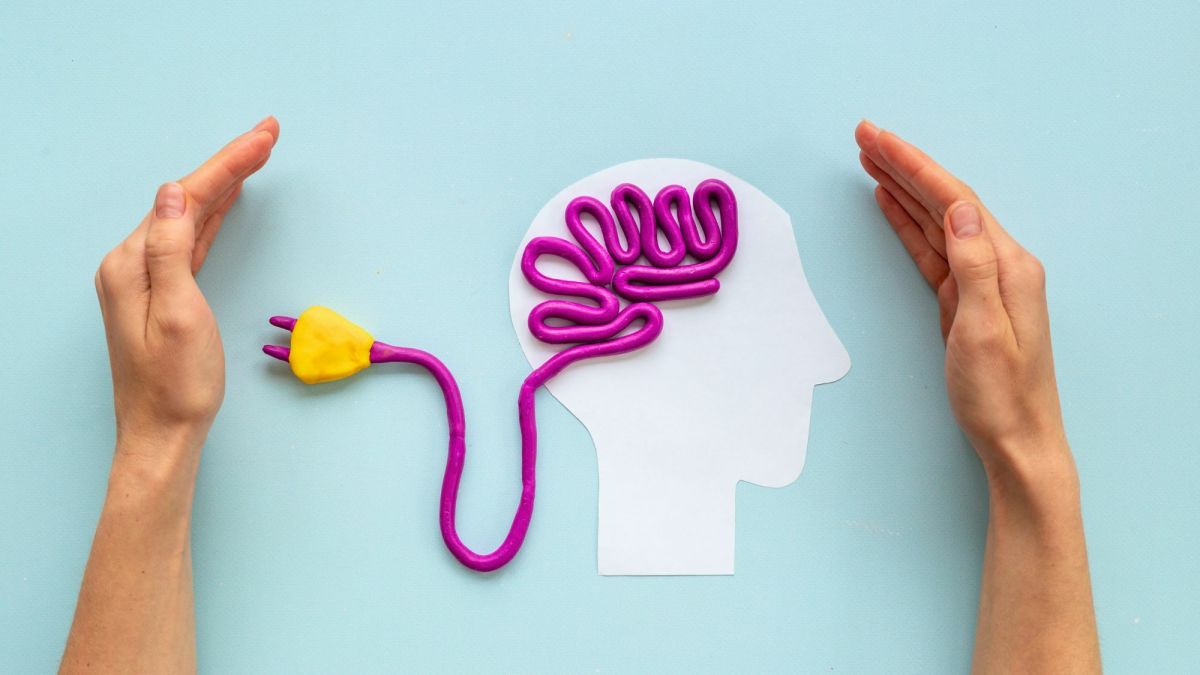The origin, science, and methods of dealing with the most common psycholigical complexes

The best way to live a happy life, a life without complexes, is to accept and love every part of yourself. That means to constantly upgrade your personality and to free yourself from all negative emotions.
What is a complex?
Society and the times in which we live today presents individuals with high standards when it comes to physical appearance and intellectual abilities. Society causes people to feel the need to look and act perfectly while any imperfection, big or small, can make these individuals feel catastrophic, because in their head they have a clearly constructed image of how they should appear to others. Such people constantly compare that picture with the real picture and this is where the dissatisfaction or complex arises.
The word represents a complex set of feelings, perceptions and memories as a dynamic part of the personality that affects individual behavior. Complexes to some extent disturb normal thinking and behavior, and sometimes lead to pathological disorders. Equally, both men and women are affected with different complexes that are usually tied to consequence of experiences from early childhood, puberty, or from a later time.

The origin of complexes
Carl Jung, the Swiss psychiatrist and very close associate of Sigmund Freud, first used the term “complex”. In his opinion, the complex is a collection of feelings, perceptions and values that work as part of a dynamic personality that influences individual behavior. These complexes usually occur very early during the developmental period of the child, with the first five years being the most important and most critical when it comes to the development of the whole personality of man. As disorders in people lead them to obscure decisions or behaviors, they represent a very serious problem.
Treatment is not always possible and the only successful approach could sometimes be psychotherapy. The complexes often occur in puberty and they are mainly related to physical appearance. Complexes are not a serious issue for most, as the symptoms slowly disappear during growth and maturing and usually disappear. Most never admit that they ever had a complex.

Complexes at the earliest ages
It often happens that children are compared with their peers and consider themselves worse than them. The question is how these complexes are formed and whether the parents are to blame. Studies show that many girls aged three to four years of age often reveal that they would want to marry a man who reminds them of their father, and boys often state that their future wife will be beautiful like their mother. However, it is clear to them that things are not always ideal and there arises the problem. In most cases, the complex is often going to be overgrown and everything turns out fine.
However, some children never outgrow their complexes. Some boys retain the illusion to become a “mommy's boy” of sorts whole showing interest in proving that they are better than their father, and are hence, worthy of their mother's attention.


Why children have complexes?
Psychologists suggest that when it comes to quarrels and disagreements between spouses they should never force their child to be a mediator. The relationship between the parents is not a subject that is discussed in the presence of a child. There is an enormous burden on mothers who raise their children alone. One unconsciously expects from her child be a support and protection, but no matter how hard she may try, a child can not do that . The complex occurs in those children who feel that their parents do not like them not because of themselves, but because of the success they achieved.
But, for children it is very difficult because they think they will not be loved If they are not successful. Parents must not notice children only when they do something parents do not approve of. However, it is much easier to boast a child. Parents should love their children regardless of their faults and shortcomings and help them to build better relations with other people. Sensitive and withdrawn children should not be too publicly exposed.
It is hard for children when their mothers are too preoccupied with themselves. This happens when the mother blames the child for her own failures, for example: "Because of your birth, I did not graduate from school." Such children feel responsible and are convinced that they owe something to their parent.

How to identify a person with complexes
People who have any kind of complexes are sometimes very easy to recognize, but it is not always easy to deal with them. For such persons, it is difficult for them to accept the truth about themselves since they already have a distorted image in their head with which they have probably lived with for some time, convinced that it is a right and realistic image for themselves.
Like some drug addicts, when they realize they have a problem, it becomes less of a problem, and what remains is to solve it in the best, least painful and most effective way possible. The most effective solution has been proven to be a conversation with a professional. The hardest part of the treatment is to find the cause and time of complex formations. Another problem is that individuals with complexes sometimes do not have the courage and the will that is needed to look for professional help.
Summary of Common Complexes
Type
| ||
|---|---|---|
Oedipus Complex
| Son's unnatural love towards mother
| Mildly Occuring
|
Electra Complex
| Daughter's unnatural love towards father
| Mildly Occuring
|
Cain's Complex
| Older child shows intolerance towards newborn brother or sister
| Mildly Occuring
|
The most common complexes
The most famous complexes are the Oedipus and Electra complexes which were defined by the father of psychoanalysis, Sigmund Freud. The Oedipus complex manifested through unnatural desire and love of a son to his mother, and the Electra complex involves the daughter's love towards her father. Cain’s complex is another common complex. This is where the older child has some degree of intolerance towards a newborn brother or sister. Today, there are frequent complexes that involve physical appearance.
Women suffer most because of standards related to beauty, stature, and intellectual ability, while men suffer because of similar standards concerning height, baldness, and marital status. Some of the most common complex of today are also: the complex higher values, inferiority complex, complex of modern Brunhilde, Cinderella Complex, Complex of Venus, Complex of Climax and Hypersensitivity complex. Depending on how long they last in which the stage, these complexes can be treated.

Complexes of higher and lower values
The complex of higher values or ideas about overestimated sizes are very serious disease states, the idea that someone is better than you are, stronger, invincible, God-given in relation to other, more valuable than they really are..."
These two complexes are opposed to each other, because people with inferiority complexes are trying to present themselves in the best possible light to others. Those with complexes of higher values do not spend a lot of time trying to prove themselves because they are, in themselves, already the best. In both complexes, the problem is a false image of themselves. That is why both complexes are often mistakenly placed as an individual diagnosis. Instead, the place where they are most recognizable is the business environment.
The struggle for success and money attracts people of all molds and they must be winners. People who are trying to leave the best impression on the entire work environment often suffer from both types of complexes. They set themselves a target to win and to be the favorite is often caused by a feeling of not belonging and low self-esteem, that has an inferiority complex, whereas the position taken is actually a manifestation of overvalued ideas in size.


The Complex of Modern Brunhilde
The legend of Brunhilde is a popular German legend. This heroine was a very beautiful woman and a slave to her beauty. She wanted a man who would be nice, strong and honest, and able to provide proof of his courage. However, such a man, she could not find. However, King Gunther, who was in love with Brunhilda, asked that the invincible Siegfried, who possessed the magical power to become invisible, take his place and provide evidence of the power and capabilities to Brunhilde.
Thanks to Siegfried's virtues, Brunhilde married Gunther, but when Siegfried’s magical power ceased, she found herself next to a feeble and helpless man. A modern Brunhilde should be advised not to set herself above other women, she should not overestimate herself and her qualities and not expect a man who is accompanied only with virtue. The case can certainly be taken as a good example of the superiority complex or higher values.
However, it is in fact an explicit case of inferiority complex or inferiority, because Brunhilde hoped that with such a perfect man she would also become perfect. Later, she discovered that her "prince" is neither wiser nor more powerful and it becomes the cause of her unhappiness and disappointment. A woman with such a complex should be honest with herself and shouldn’t stifle the imagination, imagining and inventing the ideals from fairy tales. Only in this way, can she eliminate or mitigate rooted inferiority complex.

What is the solution?
Through increasing awareness of how complexes limit us and make our life miserable, we as humans continue to search for solutions to our problems. Or we might run from them in various ways, avoiding certain situations and people. Through drugs, alcohol, food or shopping addiction, television, and Internet, we are dedicated to everything that allows us to not have to deal with problems.
However, deep down, we actually know that none of this is a proper solution. When the primary source of distraction is gone, our problems can return, bigger and stronger than ever. The next step for many becomes the ability to work on themselves. We begin looking for solutions in changing habits through various mental techniques or psychotherapy designed to change our minds. After years of working on themselves, some people have a sense that they have not moved from the place. They feel like the underlying root problems are continuing to struggle with them.
Acceptance and Release of Negative Emotions

While those with complexes do not accept their emotions and their limitations, and do not stop to create resistance to them, nor give up the desire to change them, they will stubbornly stand where they are. As much as they try to change themselves or the world around them, fundamental change will not occur until they have accepted what's bothering them and go against that instead of running. In that moment, when they truly accept the situation as it is, they will feel great relief and their problem will suddenly become much smaller and lighter.
Next comes the most important and biggest task, which is getting rid of negative thoughts and negative emotions. This is something that everyone has to distinguish within themselves. When a person succeeds with that, when they become free from negative emotions and regain their mental health, the mind will create less stress, and the person may have a clear mind as well as the ability to act optimally.








